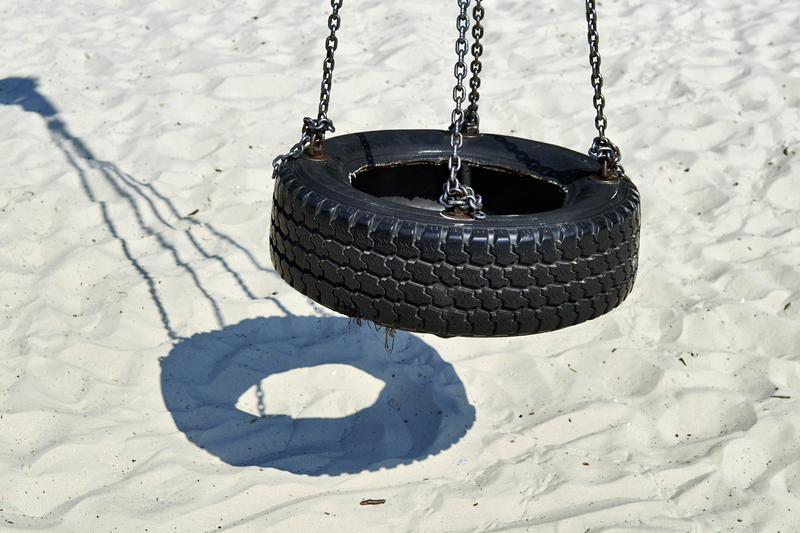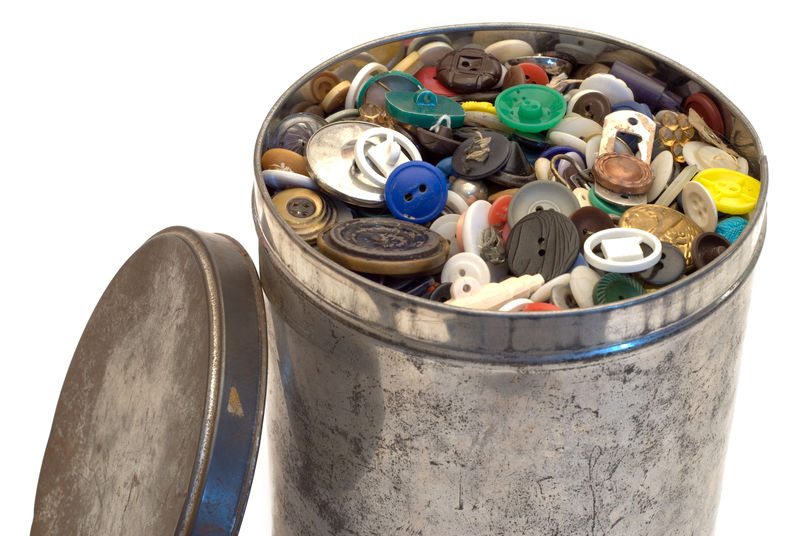Become a Recycling Pro at Home with This Essential Advice
Are you ready to level up your recycling game at home? Many households aspire to be more eco-friendly, but navigating the world of residential recycling can be confusing. With these comprehensive tips and tricks, you'll transform into a home recycling expert--saving resources, reducing waste, and contributing positively to the planet's future. In this guide, we'll break down everything you need to know, from mastering household waste recycling to understanding common mistakes and exploring innovative ways to recycle at home.

Table of Contents
- Why Should You Recycle at Home?
- The Basics of Home Recycling
- Tips for Sorting Your Waste Like a Pro
- Common Recycling Bin Mistakes (And How to Avoid Them)
- Going Beyond: Advanced Household Recycling Strategies
- Unusual Items You Didn't Know You Could Recycle
- How to Involve Your Family in Home Recycling
- Tech Tools to Help You Recycle at Home
- FAQs: Expert Recycling at Home
Why Should You Recycle at Home?
Recycling at home goes far beyond just tossing used bottles into a bin. By committing to proper domestic recycling practices, you:
- Conserve natural resources by reusing valuable materials.
- Reduce landfill waste, cutting down on landfill expansion and pollution.
- Lower greenhouse gas emissions, helping to combat climate change.
- Save energy, since making products from recycled materials generally requires less energy than using raw resources.
- Encourage innovation and stimulate a sustainable circular economy.
Recycling at home is a simple yet powerful way to make a lasting impact on the environment--one item at a time.
The Basics of Home Recycling
To truly become a recycling pro at home, you'll need a solid understanding of the basic principles. This will ensure that your efforts actually make a difference and don't unintentionally harm the recycling process.
Essential Rules for Home Recycling
- Cleanliness is crucial: Wash out food containers (e.g., jars, yogurt cups, cans) before recycling. Residue can contaminate whole recycling batches.
- Know your recycling symbols: Numbers (often inside a triangle) indicate different types of plastics. Check your local program to see which types are accepted.
- Be aware of your city's rules: Recycling guidelines differ widely between municipalities. Always consult your official city or county guide.
- Avoid recycling plastic bags and film in curbside bins: Most programs can't process soft plastics--return them to collection points at grocery stores instead.
- Don't mix non-recyclables: Not everything with a recycling symbol is recyclable in your area. Check before you toss!
Tips for Sorting Your Waste Like a Pro
Proper sorting is the foundation of effective household recycling. Master the art of sorting with these top tips:
How to Set Up an Efficient Home Recycling Station
- Dedicate space for sorting: Place separate containers for paper, plastics, metals, glass, and waste.
- Label your bins clearly using bold, permanent signs or colored stickers.
- Keep your recycling area clean and accessible--the easier it is to sort, the more likely your household will participate.
- Consider a bin for special items: Batteries, electronics, lightbulbs, and more shouldn't go in your normal curbside collection.
Best Practices for Sorting Common Materials
- Paper: Recycle clean, dry office paper, newspapers, magazines, and cardboard. Avoid paper towels, greasy pizza boxes, and wet paper.
- Plastics: Recycle #1 and #2 plastics where accepted. Rinse them and remove caps (unless your locality says otherwise).
- Glass: Only jar and bottle glass--no ceramics, Pyrex, or window glass! Rinse and remove lids.
- Metals: Aluminum cans, tin cans, and clean foil are typically accepted. Rinse before recycling.
Common Recycling Bin Mistakes (And How to Avoid Them)
Even the most enthusiastic recyclers sometimes make mistakes that can sabotage their efforts. Avoid these pitfalls to become a recycling champion:
- Wish-cycling: Tossing questionable items in the hope they'll be recycled (“Better safe than sorry!”) is a big mistake. Only recycle items you know are accepted.
- Failing to rinse: Food contamination can spoil entire loads. Always clean containers first!
- Recycling pizza boxes with grease stains: Oil and food residue make cardboard unrecyclable. Compost these if you can.
- Bagging recyclables in plastic: Plastic bags can jam machinery--always put items loosely in the bin unless your city says otherwise.
- Ignoring local rules: Each recycling program is unique. What's recyclable in one area may not be in another!
When in doubt, check your local council's website for updated recycling lists.
Going Beyond: Advanced Household Recycling Strategies
Upgrade Your Recycling with These Pro Techniques
- Start composting: Food scraps and yard waste make up a large share of landfill trash. Composting at home reduces methane emissions and creates nutrient-rich soil for your garden.
- Buy recycled products: Close the loop by choosing goods made from post-consumer recycled material.
- Shop in bulk and use reusable containers: Minimize single-use packaging and reduce what needs recycling in the first place.
- Participate in community recycling programs: Many offer special collection days for hard-to-recycle items like paint, e-waste, and bulky plastics.
- Establish a mini recycling center at home for specialty items such as batteries, ink cartridges, and electronics. Deliver to drop-off points monthly.
With these advanced tips, you'll be on your way to true home recycling mastery!
Unusual Items You Didn't Know You Could Recycle
Achieving expert-level recycling means going beyond the basics and finding new ways to reduce your landfill footprint. Here are some unexpected items you can give a second life:
- Old sneakers and textiles: Many brands and donation centers accept shoes and clothing for recycling.
- Lightbulbs (CFLs and LEDs): Recycle at hardware stores or through hazardous waste programs.
- Small electronics (phones, tablets): Look for e-waste recycling events or return programs by manufacturers.
- Oral care products (toothbrushes, toothpaste tubes): Brands like Colgate(R) and TerraCycle(R) accept mail-in recycling.
- Plastic plant pots: Many garden centers will take these back and recycle them.
Pro Tip: Before tossing anything, Google if it's recyclable in your area--you might be surprised!
How to Involve Your Family in Home Recycling
Becoming a recycling expert at home is easier when the whole household works together. Here's how to get everyone on board:
- Make it fun for kids: Use charts and stickers to celebrate recycling milestones.
- Assign recycling duties: Let each family member be responsible for a different recycling category.
- Lead by example: Show your commitment to recycling and explain why it matters.
- Host monthly recycling challenges and reward eco-friendly behaviors.
Educating others is a big part of being a recycling pro!
Tech Tools to Help You Recycle at Home
Let technology enhance your recycling efforts. Here are smart tools and resources that can turn you into a true household recycling hero:
- Recycling directory apps: Try "Recycle Coach" or "iRecycle" to check what goes where in your zip code.
- Reminder apps: Set up alerts on your phone's calendar for collection days and hazardous waste drop-offs.
- Barcode scanning apps: Scan grocery items to see if their packaging is recyclable locally.
- Online communities: Join local social media groups for recycling tips and exchange programs.
- Smart bins: Some high-tech countertop sorters can help families sort more efficiently and track impact.
Embrace these innovations to streamline sorting and stay updated on best practices.
FAQs: Expert Recycling at Home
How clean do my recyclables need to be?
Rinse them well! Containers should be free of food residue. Sticky jars or greasy pizza boxes can ruin entire recycling loads.
What plastics can I put in my home recycling bin?
Check for the recycling number (usually #1 or #2 plastics are accepted), but local guidelines are key. Not all programs take the same types.
Can I recycle shredded paper?
In most areas, shredded paper should be taken to special drop-off centers or composted, as it can slip through sorting machines.
What should I do with electronics?
Never toss electronics in the bin! Search for "e-waste recycling" in your city or ask at your local electronics store.
Is composting the same as recycling?
Composting and recycling are both forms of waste reduction, but composting is for organic materials like food and yard waste, while recycling focuses on materials like paper, plastic, and metal.

Final Word: Ready to Become a Home Recycling Pro?
Mastering at-home recycling is a journey--one that gets easier (and more rewarding) with knowledge, the right tools, and family involvement. With these essential pieces of advice, you're well on your way to becoming a recycling pro at home. Sort with confidence, avoid contamination, recycle more than ever, and inspire others to join you in protecting our one and only planet--starting right at your doorstep!
Remember: Every item you properly recycle makes a difference. Start today and become a true home recycling superstar!
```